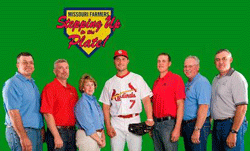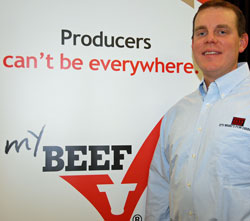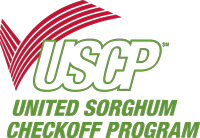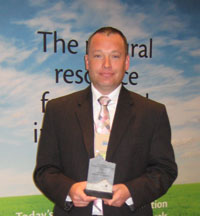 Actually St. Louis Cardinals left-fielder, Matt Holliday, is “Stepping Up To The Plate.”
Actually St. Louis Cardinals left-fielder, Matt Holliday, is “Stepping Up To The Plate.”
A coalition of Missouri agriculture organizations has launched a summer education campaign with the St. Louis Cardinals. Themed “Stepping Up to the Plate,” the goal of this initiative is to increase consumer understanding of how today’s farmers are using the latest technology to provide safe, affordable, nutritious food. And the agriculture coalition is bringing in a heavy hitter.
St. Louis Cardinals left-fielder Matt Holliday is teaming up with Missouri corn, soybean, beef, pork, poultry and dairy producers to highlight the great strides farmers are making in meeting the nation’s growing nutritional needs while improving the environment. A native of Oklahoma, the nation’s number two producer of beef cattle, Holliday is partnering with Missouri farmers on an advertising campaign featuring radio ads, grocery store promotions and print advertising.
(Pictured from left): Kevin Hurst, corn farmer from Tarkio; Archie “Rusty” Mulford, poultry farmer from Aurora.; Donna Telle, dairy farmer from Uniontown; Matt Holliday, left fielder for the St. Louis Cardinals; John Ridder, beef farmer from Marthasville; Rick Rehmeier, hog farmer from Augusta; Warren Stemme, soybean farmer from Chesterfield.
 Cindy interviewed the Missouri Beef Industry Council’s (MBIC) representative on the MO Ag Team, John Ridder, who is now going by the name “Mr. Baseball” in the Missouri beef community. John kind of likes the name and is really excited about the promotion and working with all the state commodity groups. “We all kind of got together and shared some advertising dollars to help put a positive spin on agriculture with all the negative reports that are in the media,” John says. “We just want to have a good image in the public.”
Cindy interviewed the Missouri Beef Industry Council’s (MBIC) representative on the MO Ag Team, John Ridder, who is now going by the name “Mr. Baseball” in the Missouri beef community. John kind of likes the name and is really excited about the promotion and working with all the state commodity groups. “We all kind of got together and shared some advertising dollars to help put a positive spin on agriculture with all the negative reports that are in the media,” John says. “We just want to have a good image in the public.”
The radio spots are already airing during the Cardinals games and they are also doing a tie-in promotion with Schnuck’s grocery stores and John says they are even getting their own baseball cards. During Friday night home games they will also be having a tailgate party to get out and actually meet the public.
Listen to or download Cindy’s interview with John here that will be featured as an upcoming MBIC weekly radio report:



 Cindy interviewed the Missouri Beef Industry Council’s (MBIC) representative on the MO Ag Team, John Ridder, who is now going by the name “Mr. Baseball” in the Missouri beef community. John kind of likes the name and is really excited about the promotion and working with all the state commodity groups. “We all kind of got together and shared some advertising dollars to help put a positive spin on agriculture with all the negative reports that are in the media,” John says. “We just want to have a good image in the public.”
Cindy interviewed the Missouri Beef Industry Council’s (MBIC) representative on the MO Ag Team, John Ridder, who is now going by the name “Mr. Baseball” in the Missouri beef community. John kind of likes the name and is really excited about the promotion and working with all the state commodity groups. “We all kind of got together and shared some advertising dollars to help put a positive spin on agriculture with all the negative reports that are in the media,” John says. “We just want to have a good image in the public.” I was interested to see that the
I was interested to see that the  The
The  Robert White, Director of Market Development for the
Robert White, Director of Market Development for the 
 The credit for “Till, Baby, Till” goes to
The credit for “Till, Baby, Till” goes to  “Our integrated biorefinery model will put an end to the ‘food versus fuel’ debate,” Oswald said. “Now you can have your fuel and eat it too.” According to Oswald,
“Our integrated biorefinery model will put an end to the ‘food versus fuel’ debate,” Oswald said. “Now you can have your fuel and eat it too.” According to Oswald,  The
The